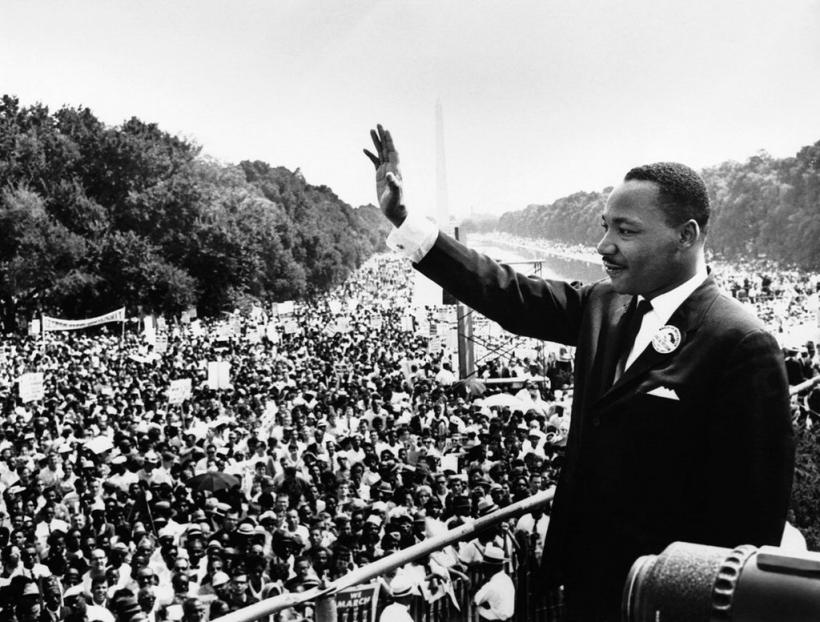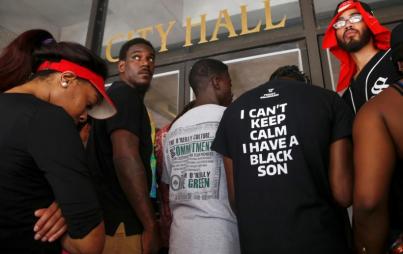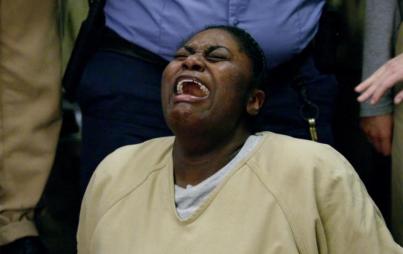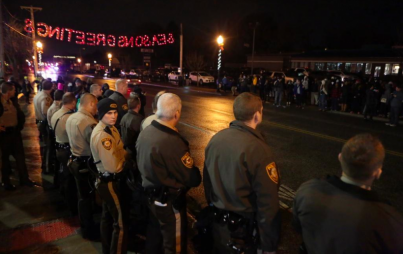
Image courtesy: Wikimedia licensed under Creative Commans
Are we fighting the same fight, only with new soldiers on either side of the battlefield?
What can I tell you about Martin Luther King Jr. that you don’t already know? He marched on Selma, he was married to Coretta, he was arrested 29 times, had 4 children. He was murdered while standing on the balcony of the Lorraine Motel in Memphis, TN on April 4, 1968.
Oh, and he also wrote a pretty famous speech. Perhaps you’ve heard of it — it’s known as the “I Have A Dream” speech. It is easily one of the most famous speeches of all time. It is quoted repeatedly this time of year as we celebrate his birthday, but this year I want to ask you to take a look at a less popular, but profoundly pertinent part of this speech.
It is not a part of the “I Have A Dream” speech I have ever heard quoted, or even mentioned for that matter. However, I hope that as you read it (below), you are able to draw the parallels between the issues of the civil rights movement Dr. Martin Luther King fought so hard to rectify, and the issues of today’s #BlackLivesMatter movement.
While we want to believe so badly that so much has changed, so much has improved, reading this excerpt begs the question: has it?
Are we fighting the same fight, only with new soldiers on either side of the battlefield? Have the four little girls of the 16th Street Baptist Church bombing become the nine souls gunned down during a bible study at the Emanuel African Methodist Church? Did Emmett Till become Trayvon Martin? Have the words “I AM A MAN” been replaced by the haunting last gasps of Eric Garner — “I CAN’T BREATHE”? How far have we come?
And if we’re really all in this fight together –– Black, White, Asian, Latino, Christian, Muslim and everything else in between –– how far are we willing to go, collectively, to make Dr. King’s dream a reality?
Excerpt from “I have A Dream” by Dr. Martin Luther King Jr
“I am happy to join with you today in what will go down in history as the greatest demonstration for freedom in the history of our nation.
Five score years ago, a great American, in whose symbolic shadow we stand today, signed the Emancipation Proclamation. This momentous decree came as a great beacon light of hope to millions of Negro slaves who had been seared in the flames of withering injustice. It came as a joyous daybreak to end the long night of captivity.But one hundred years later, the Negro still is not free. One hundred years later, the life of the Negro is still sadly crippled by the manacles of segregation and the chains of discrimination.
One hundred years later, the Negro lives on a lonely island of poverty in the midst of a vast ocean of material prosperity. One hundred years later, the Negro is still languished in the corners of American society and finds himself in exile in his own land. So we have come here today to dramatize an shameful condition.In a sense we've come to our nation's Capital to cash a check.
When the architects of our republic wrote the magnificent words of the Constitution and the Declaration of Independence, they were signing a promissory note to which every American was to fall heir. This note was a promise that all men, yes, black men as well as white men, would be guaranteed the unalienable rights of life, liberty, and the pursuit of happiness.It is obvious today that America has defaulted on this promissory note insofar as her citizens of color are concerned.
Instead of honoring this sacred obligation, America has given the Negro people a bad check; a check which has come back marked "insufficient funds."
But we refuse to believe that the bank of justice is bankrupt. We refuse to believe that there are insufficient funds in the great vaults of opportunity of this nation. So we have come to cash this check- a check that will give us upon demand the riches of freedom and the security of justice.
We have also come to this hallowed spot to remind America of the fierce urgency of now. This is no time to engage in the luxury of cooling off or to take the tranquilizing drug of gradualism. Now is the time to make real the promises of democracy. Now is the time to rise from the dark and desolate valley of segregation to the sunlit path of racial justice. Now is the time to lift our nation from the quicksands of racial injustice to the solid rock of brotherhood. Now is the time to make justice a reality for all of God's children. It would be fatal for the nation to overlook the urgency of the moment.
This sweltering summer of the Negro's legitimate discontent will not pass until there is an invigorating autumn of freedom and equality. Nineteen sixty-three is not an end, but a beginning. Those who hope that the Negro needed to blow off steam and will now be content will have a rude awakening if the nation returns to business as usual.
There will be neither rest nor tranquility in America until the Negro is granted his citizenship rights. The whirlwinds of revolt will continue to shake the foundations of our nation until the bright day of justice emerges. But there is something that I must say to my people who stand on the warm threshold which leads into the palace of justice. In the process of gaining our rightful place we must not be guilty of wrongful deeds. Let us not seek to satisfy our thirst for freedom by drinking from the cup of bitterness and hatred.
We must forever conduct our struggle on the high plane of dignity and discipline. We must not allow our creative protest to degenerate into physical violence. Again and again we must rise to the majestic heights of meeting physical force with soul force. The marvelous new militancy which has engulfed the Negro community must not lead us to a distrust of all white people, for many of our white brothers, as evidenced by their presence here today, have come to realize that their destiny is tied up with our destiny. And they have come to realize that their freedom is inextricably bound to our freedom.
We cannot walk alone. And as we walk, we must make the pledge that we shall march ahead. We cannot turn back. There are those who are asking the devotees of civil rights, "When will you be satisfied?" We can never be satisfied as long as the Negro is the victim of the unspeakable horrors of police brutality. We can never be satisfied as long as our bodies, heavy with the fatigue of travel, cannot gain lodging in the motels of the highways and the hotels of the cities.We cannot be satisfied as long as the Negro's basic mobility is from a smaller ghetto to a larger one.We can never be satisfied as long as our children are stripped of their selfhood and robbed of their dignity by signs stating "for whites only." We cannot be satisfied as long as a Negro in Mississippi cannot vote and a Negro in New York believes he has nothing for which to vote. No, no, we are not satisfied, and we will not be satisfied until justice rolls down like waters and righteousness like a mighty stream.
I am not unmindful that some of you have come here out of great trials and tribulations. Some of you have come fresh from narrow jail cells. Some of you have come from areas where your quest for freedom left you battered by the storms of persecution and staggered by the winds of police brutality. You have been the veterans of creative suffering. Continue to work with the faith that unearned suffering is redemptive. Go back to Mississippi, go back to Alabama, go back to South Carolina, go back to Georgia, go back to Louisiana, go back to the slums and ghettos of our northern cities, knowing that somehow this situation can and will be changed. Let us not wallow in the valley of despair.I say to you today, my friends, so even though we face the difficulties of today and tomorrow, I still have a dream. It is a dream deeply rooted in the American dream.”








